Do you remember these Irish things that no longer exist?
From wearing the clothes of the dead to Mass, to British soldiers patrolling the streets, how many of these things from Ireland of yesteryear do you remember?
1. Wearing the clothes of the dead to Mass
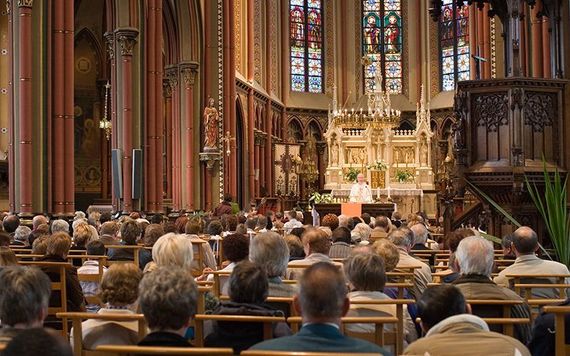
Wearing the clothes of the dead to Mass.
Until the mid-20th century, in certain parts of Kerry and West Cork, it was a tradition for someone in the family to wear the clothes of the departed to Mass in order to keep away ghosts. Over time people began to just take the clothes to Mass and leave them in a suitcase at the back of the church before abandoning the tradition entirely.
2. British soldiers
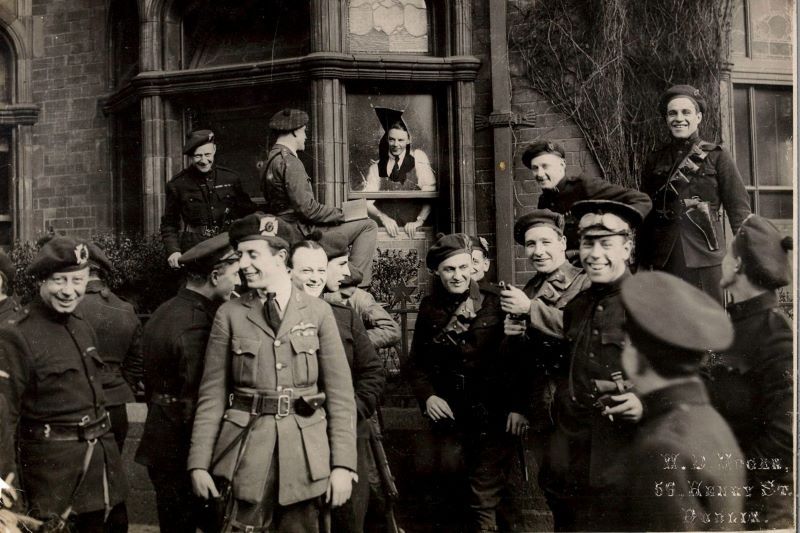
April 11, 1921: Black and Tans and Auxiliaries in Dublin. (National Library of Ireland on The Commons)
If you know an Irish person a hundred years old or more, ask them if they remember the War of Independence when the Black and Tans and soldiers from other British regiments roamed the land in an attempt to keep order.
Anyone 30 or over from Northern Ireland will remember Her Majesty’s Armed Forces patrolling the streets and alleys of Northern Ireland during the Troubles. For a long time, crossing the border meant being checked by the British Army, but as peace returned, so Britain’s military presence gradually melted away. Operation Banner formally came to an end in 2007 and, whilst there are still British army barracks in the province (in the same way there are in England, Wales, and Scotland). they’re no longer tasked with keeping an armed insurrection at bay.
3. Monolingual Irish speakers (probably ...)
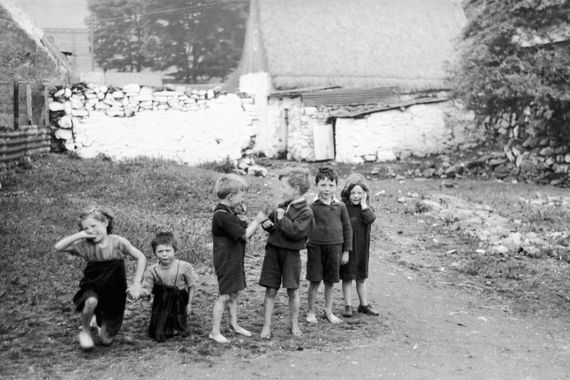
Children in the Claddagh Galway.
A few decades ago, it would have been possible to find people in certain Gaeltachtaí (Irish Gaelic-speaking areas) who spoke only Gaeilge (Irish).. Certainly, there are a number of children too young for school who still don’t speak English currently but they’ll soon pick it up – they all watch American cartoons and movies.
There are also still plenty of people who feel more comfortable speaking Irish than English. They might not know the words for things they’ve only ever spoken about in Irish, but even this group of imperfect bilinguals dwindles year on year. Most young people who hail from the Gaeltacht leave at some point for a city and return perfectly fluent in both of Ireland’s official languages.
Have a look at this video about one of the last-ever monolingual Irish speakers.

Love Irish history? Share your favorite stories with other history buffs in the IrishCentral History Facebook group.
4. No drinking on St Patrick’s Day
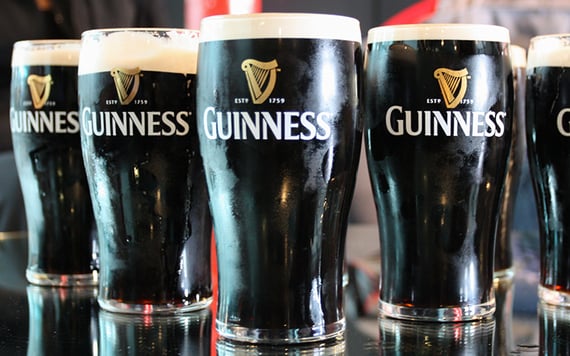
Pints of Guinness used to be hard to come by on Good Friday in Ireland.
Up until the 1970s, pubs in Ireland used to close on St Patrick’s Day. Not only was it a question of law but it was a day off for bar staff like anyone else and a day for religious observance. The only place you could buy a legal pint was the Royal Dublin Dog Show and many who attended had little interest in canines; one politician remarked that it was a fine event, “except for all the dogs.”
In 2018, the ban on the sale of alcohol on Good Friday was also lifted.
5. Ladies not being served pints
Never mind St Patrick’s Day, there was a time when it was considered unladylike to drink a pint and most pubs would refuse to serve any woman who dared ask for one. In the 1970s, large groups of Dublin feminists took to visiting bars and ordering brandies. The last woman to be served would then ask for a pint when she was refused her friends would all down their brandies and leave without paying.
6. Do you remember when there was a stag on Ireland’s currency?
From independence until 2002, Ireland had her own currency featuring a who’s who of past heroes and native animals. Originally it was debated whether saints should be put on the new nation’s coins, but animals were eventually chosen in case the saints got upset at people using money carrying their images for gambling.
The ghost of the punt lives on in euro coins issued in Ireland. Most of the Irish euro coins feature the harp, the date it was issued, and the word “Éire” (Irish for Ireland) – it’s a very similar design to that used on Irish coins prior to the change in currency.
7. Snakes
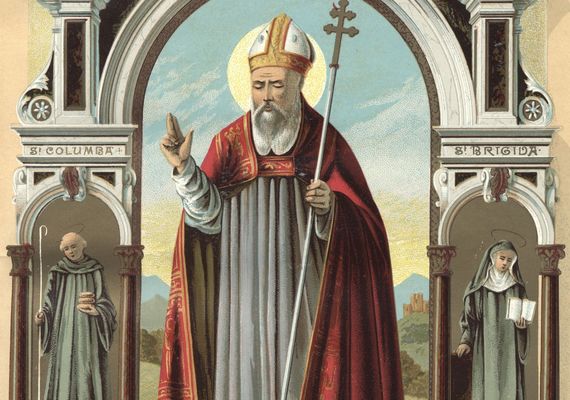
St. Patrick.
St. Patrick drove them all into the sea, didn’t he?
8. Green telephone boxes
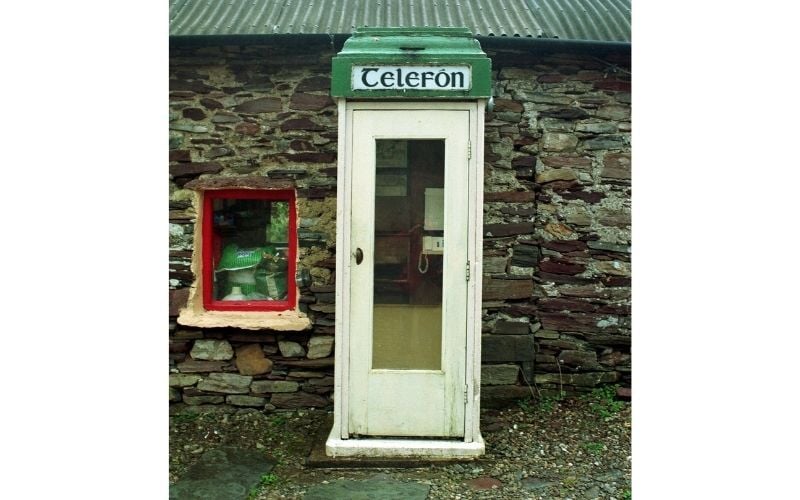
Green telephone boxes.
Like Irish post boxes, telephone boxes were painted green and bore the word ‘TÉLÉFON.’ (Can you guess what the English for that is?) Now that almost everyone has a phone in their pocket they’ve fallen into decline and many have been removed.
9. A ban on divorce

A ban on divorce.
Ireland only legalized divorce after a referendum in 1995. A previous attempt in 1986 had been roundly rejected by voters by a nearly two-to-one margin. The second time, the 15th amendment to the Constitution squeaked by with 50.28% supporting a change in the law.
Most of rural Ireland remained staunchly in favor of the ban but as the votes of liberal Dublin poured in a narrow 'no' became a narrow 'yes' and No Divorce campaigner Úna Bean Mhic Mhathuna was heard to hiss at her opponents at the count, "Go way, ye wife-swappin' sodomites."
10. Nelson’s Pillar
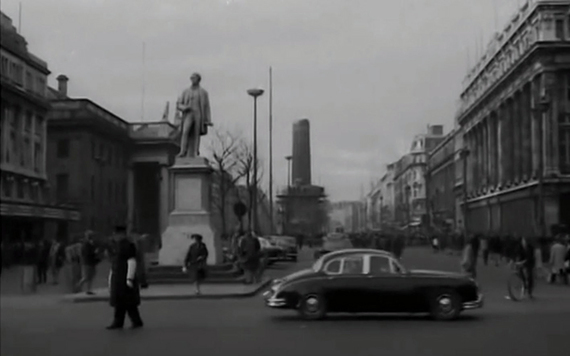
Nelson’s Pillar
A statute of British hero Vice-Admiral Horatio Nelson once towered over O’Connell Street and dominated Dublin City Center. It was erected by Dublin Corporation after Lord Nelson’s famous victory at the Battle of Trafalgar. The Pillar, as it was usually called, became a popular tourist attraction but was hated by Irish republicans.
In 1966, the year the 50th anniversary of the 1916 Rising, Dubliners awoke one morning to find O’Connell Street buried under rubble and the pillar reduced to a forlorn stump.
The Irish Government expressed its outrage, as did the establishment Irish Times. Public opinion was more mixed. Some mourned what many regarded as an icon of Dublin architecture whilst others happily sang along to a new song called “Up Went Nelson” set to the tune of “The Battle Hymn of the Republic.”
President of Ireland Éamon de Valera is rumored to have rung the editor of the Irish Press to suggest the headline "British Admiral Leaves Dublin By Air” – something future Senator David Norris derided as, "the only recorded instance of humor in that lugubrious figure."
11. The National Anthem at the end of the movies or a play
Until the early 1970s, "Amhrán na bhFiann" ("The Soldier’s Song") used to be played at the end of a movie, play, or when the national broadcaster, RTÉ finished up for the night.
Slowly the practice faded away and whilst you’ll still hear it sung at GAA matches and played as the last tune of the night in many nightclubs down the country, "Amhrán na bhFiann" isn’t heard quite as often as it once was.
Here’s a choir singing "Amhrán na bhFiann" at President Michael D Higgins's inauguration:
* Originally published in August 2017, updated in April 2023.
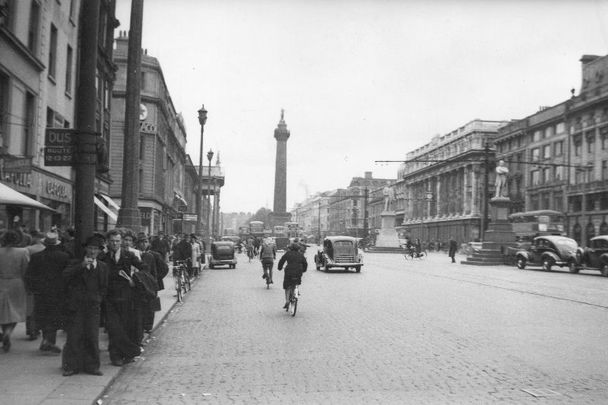



Comments